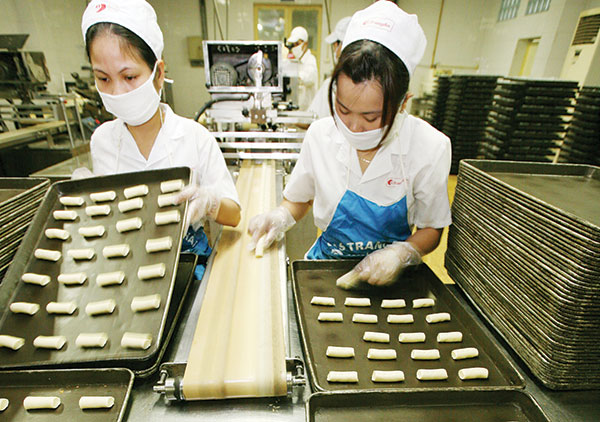Foreign organisations still casting doutbs over economic prospect

Sluggish state-owned enterprises reform remains at the core of economic problems
The Asian Development Bank (ADB) last week released its Asian Development Outlook Update 2013 stressing that private consumption in Vietnam would remain subdued due to sluggish job creation and continued weak consumer confidence.
The ADB cited TNS, a world leader in market research, global market information, and business analysis, as saying that Vietnam’s consumer confidence index, with 100 scores being the highest level, had decreased from 89 in 2008 to 56 in 2013.
The rate of those believing the value of the Vietnamese dong would worsen climbed from 5 per cent last year to 25 per cent this year, while those predicting a “far worse” economy jumped from 5 per cent to 9 per cent.
A further vote of no confidence was seen in a Fitch Ratings report released last week which said: “The prospect of a sharp improvement in growth prospects is not obvious.”
“We remain doubtful as to whether Vietnam’s gross domestic product (GDP) growth rate can pick up sharply and revert to a 7 per cent level - as was the case in the last decade,” the report said.
Fitch saw the Vietnamese banking system’s fragility as one of the major reasons, encumbered as it is by substantial bad loans.
“We do not think the current asset restructuring measures - through the creation of a state-owned asset management company (VAMC) - will replenish capital sufficiently or swiftly enough to bring about a healthy pace of credit extension to the productive sector any time soon.”
ADB country director for Vietnam Tomoyuki Kimura underscored that unless structural reforms for banks, including the resolution of non-performing loans (NPLs) and state-owned enterprises, were accelerated, the economy could face a prolonged period of lackluster growth languishing well below the 7-8 per cent pace set in 2002-2007.
Credit institutions reported that their NPL ratios rose to 4.5 per cent of total loans in the first half from 4.1 per cent by late 2012. The State Bank estimated NPLs at 6 per cent in February 2013, based on its off-site surveillance of banks.
“Gradual progress in resolving NPLs will improve business sentiment,” said Kimura. “As this happens, policy stimulus, including the cuts in interest rates this year, could gain traction in boosting credit and GDP growth.”
Navya Kumar, an assistant manager at Deloitte Research, Deloitte Services LP, noted in the Asia Pacific Economic Outlook for October 2013 that the Vietnamese economy was a shade better in Q2 2013, but not what it used to be. “It is still expected to register one of the lowest rates of annual growth in 14 years,” Kumar wrote.
“The situation is driven in part by global factors, but more so by the sluggish pace of domestic economic reforms. Slow reforms have significantly affected the country’s banking sector, which remains mired in bad debt and wary of lending, thus hindering economic growth,” added Kumar.
What the stars mean:
★ Poor ★ ★ Promising ★★★ Good ★★★★ Very good ★★★★★ Exceptional
Latest News
More News
- Kurz Vietnam expands Gia Lai factory (February 27, 2026 | 16:37)
- SK Innovation-led consortium wins $2.3 billion LNG project in Nghe An (February 25, 2026 | 07:56)
- THACO opens $70 million manufacturing complex in Danang (February 25, 2026 | 07:54)
- Phu Quoc International Airport expansion approved to meet rising demand (February 24, 2026 | 10:00)
- Bac Giang International Logistics Centre faces land clearance barrier (February 24, 2026 | 08:00)
- Bright prospects abound in European investment (February 19, 2026 | 20:27)
- Internal strengths attest to commitment to progress (February 19, 2026 | 20:13)
- Vietnam, New Zealand seek level-up in ties (February 19, 2026 | 18:06)
- Untapped potential in relations with Indonesia (February 19, 2026 | 17:56)
- German strengths match Vietnamese aspirations (February 19, 2026 | 17:40)
















 Mobile Version
Mobile Version